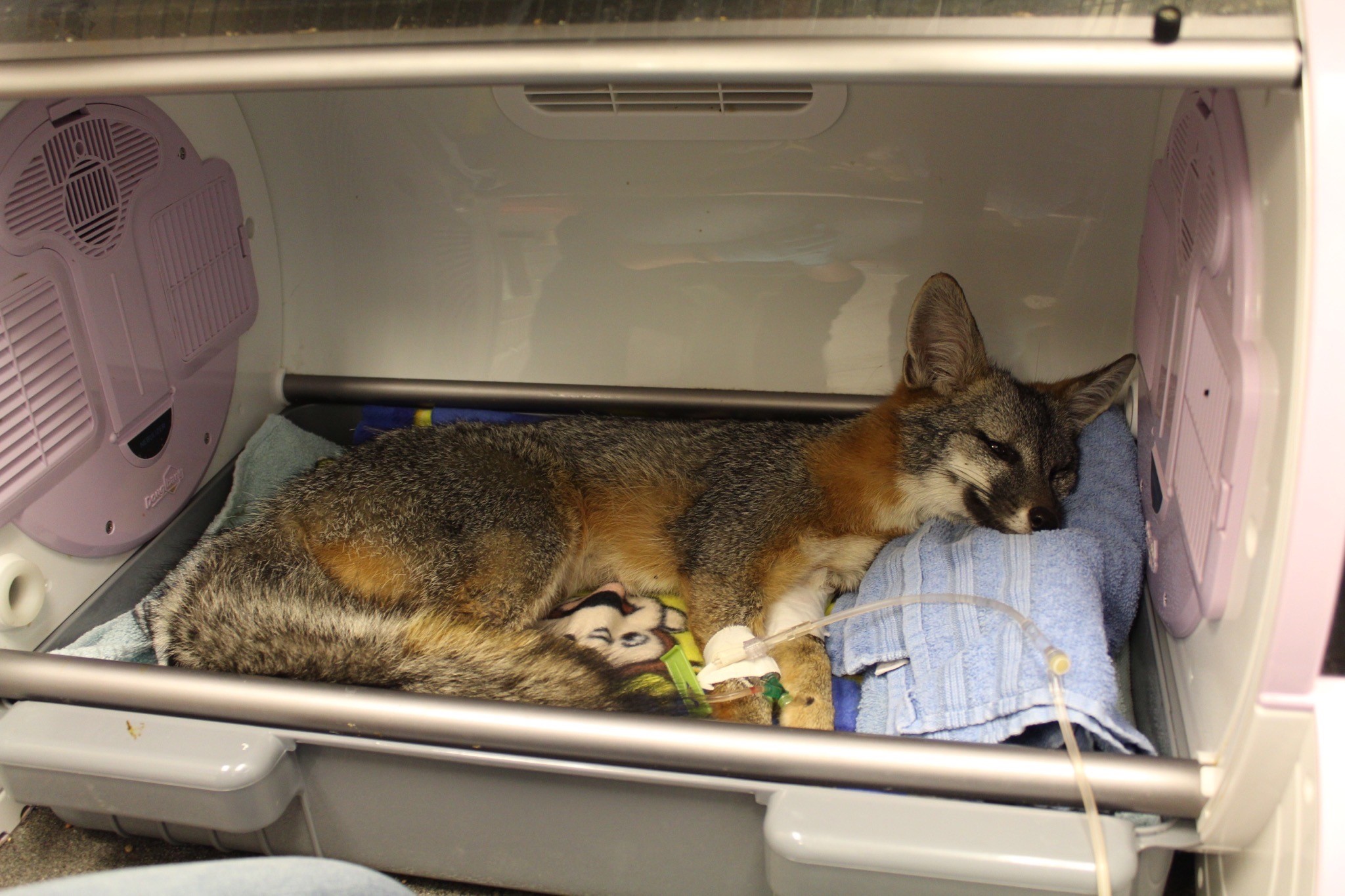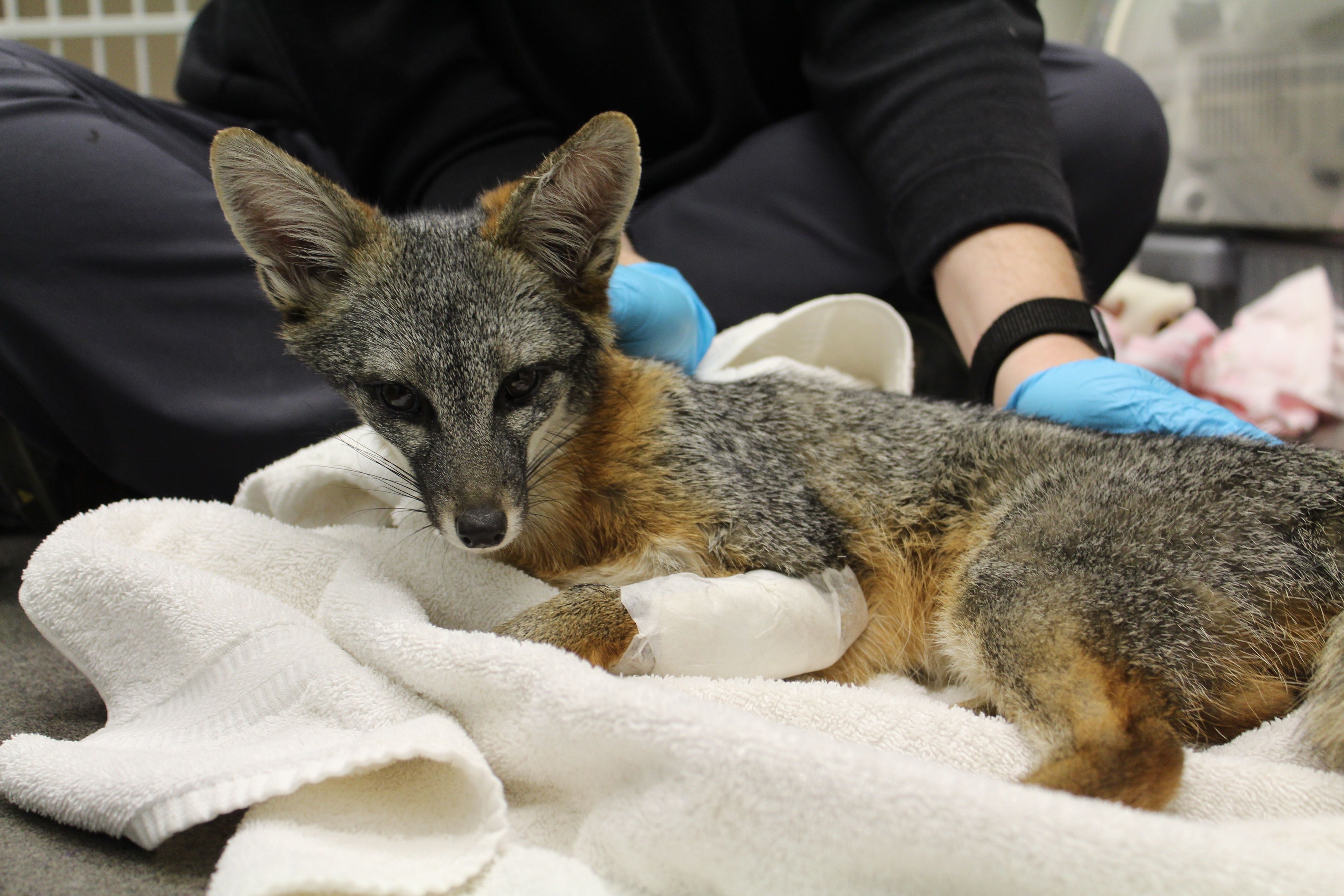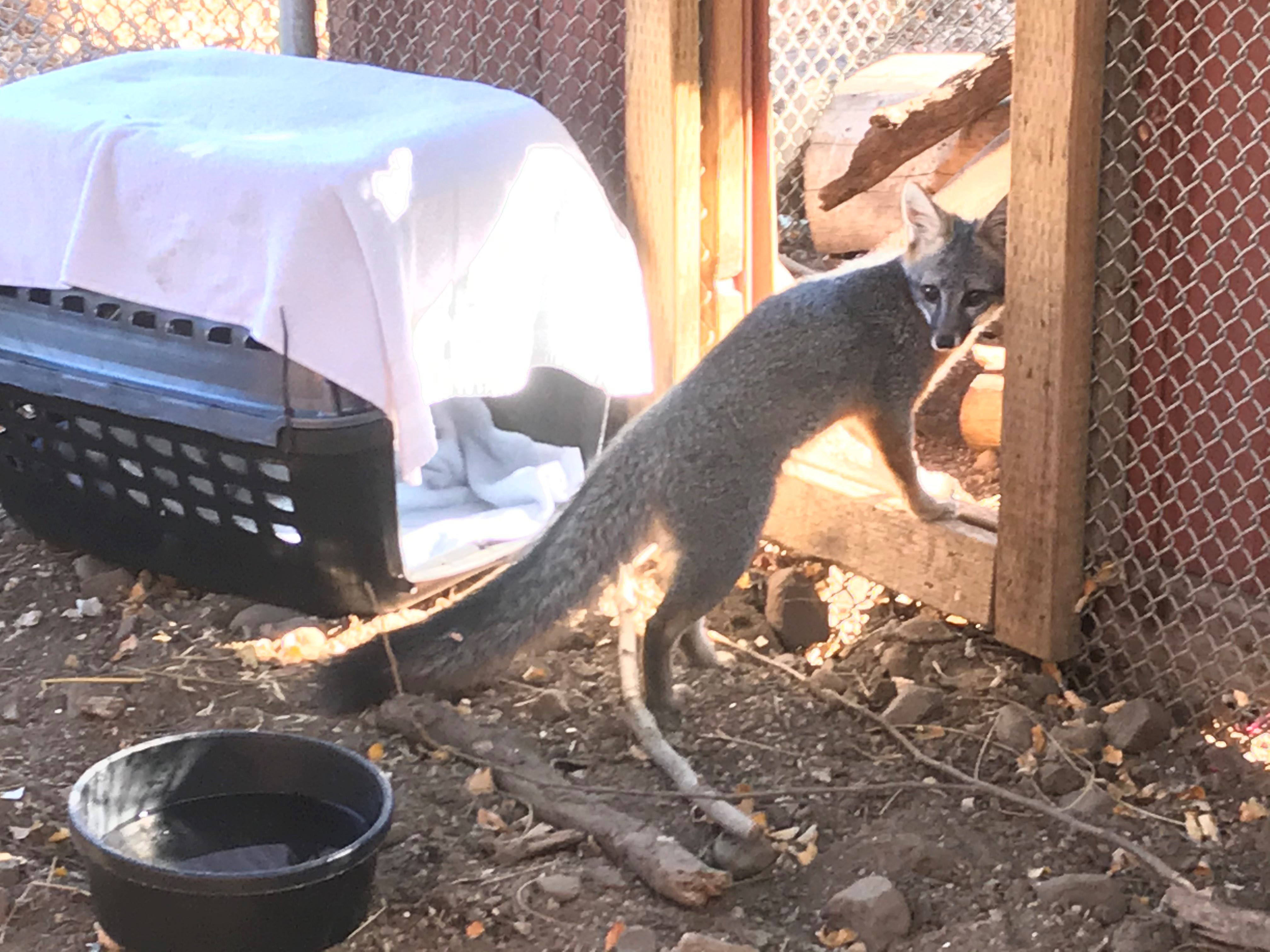CWC Medical Care Saves Gray Fox

Fox in oxygen cage
Photo by Cambria Wells
By Stephany Lewis, DVM
California Wildlife Center received an approximately 6-month-old male Gray Fox early in the morning on October 8th of this year. He was found the night before by a good Samaritan, lying non-responsive on Mulholland Highway in Calabasas. Based on his exam and diagnostic findings, the Fox appeared to have been struck by a vehicle shortly before being discovered. When he presented to us, he was stuporous, unable to stand, move, lift his head, or look around, and was non-responsive to any stimuli. He had an elevated heart rate, and he had abnormal lung sounds when his chest was listened to with a stethoscope. There was also a fresh wound over his left elbow. Full-body radiographs (x-rays) and an abdominal and chest ultrasound were taken. While he luckily had no broken bones, his chest showed evidence of trauma, as he had a mild pneumothorax, or collapsed lung, and evidence of bruising within his lungs. A full blood panel was run and did not show any major abnormalities.
Three diagnostics were also run to test this fox for canine distemper. Canine distemper is particularly common in Gray Foxes, and can cause a variety of neurological signs, such as the ones displayed by this Fox. It can also infect other wildlife, such as Coyotes, Skunks, and Raccoons, as well as domestic dogs. It is nearly always fatal, but vaccines developed for domestic dogs help prevent the disease. Luckily this Fox did not have canine distemper, and all his neurological signs could be contributable to traumatic brain injury, which while preferable to distemper, still came with a guarded prognosis.

Gray Fox with bandage on his elbow
Photo by Cambria Wells
This Gray Fox patient received intensive care for the first few days of hospitalization. First, an intravenous catheter was placed, and through it he received a drug called mannitol, which is a diuretic that helps reduce swelling in the brain in cases of head trauma, followed by intravenous fluids to help maintain blood pressure and reduce the fluid lost from the mannitol. He was also maintained in an oxygen cage, with his head elevated to help minimize pressure within the brain. Pain medication was given, and his wound was cleaned and bandaged. His temperature, heart rate, respiratory rate, blood pressure, oxygen saturation, EKG, and a small blood panel were all monitored daily. He required other extensive nursing care as well, such as passive range of motion exercises, assisted feedings, and daily bandage changes, but our technical staff more than rose to the challenge and provided excellent care to this special patient.

The patient in his outside enclosure
Photo by Dr. Stephany Lewis
The Fox’s neurological status improved daily! Within three days he was standing and walking, though other neurological signs began to show, such as a tendency to only circle to the right, and he did not display an appropriate fear of humans. However, all these abnormal signs were completely resolved in less than two weeks, and two weeks after admission he was stable enough to undergo surgery to repair the wound over his elbow. His surgical procedure was without any complications, and he recovered well from anesthesia.
The following week after his surgery, the Fox moved to an outside enclosure, and seemed very happy to do so! His sutures have been removed, and after one month in care he was ready to be released! Since Gray Foxes have a very small home range, he was returned to the location he was found. Success stories like this are why we do what we do here at CWC, and we love to share them!

What an amazing story! Thank you for all you do!!!
Thank all of you for the work you do!
This email warms my heart, so grateful to the staff!!!
Thank you, Leslie!
It’s is our pleasure!
Thank you, Nancy!
I receive your newsletter ever week, and it is one of the highlights of my week. We are all so thankful for the love and compassion you all show these magnificent animals. Thank you for all that you do there!
Omgosh, I was soo worried he might not have pulled through but he did…thank you SOOO much for all you do to help animals!!!
I moved from the southern CA to the Monterey area 7 years ago and I still follow CWC’s work! I brought many injured or wildlife in distress to you in the past. I so admire the work you do. Thank you so much. A very heartfelt, happy Thanksgiving to all the people who are a part of CWC.
I look forward to your newsletter every week! It reminds me that there is still good in the world. We are their stewards and you do the hardest work for all of us.!
“But ask the animals, and they will teach you, or the birds of the air, and they will tell you; or speak to the earth, and it will teach you, or let the fish of the sea inform you. Which of all these does not know that the hand of the Lord has done this? In his hand is the life of every creature and the breath of all mankind” (Job 12:7-10).
Well done! Thank you for saving him. Thanks to the Good Samaritan for following their heart to help him!
We couldn’t do it without our rescuers!
That’s beautiful, Cathy. Thank you for sharing!
Thank you, Stephanie! Happy Thanksgiving to you too!
Thank you for your kind words, Kathryn!
Thank you for your support, Sylvia!